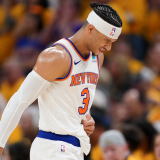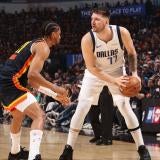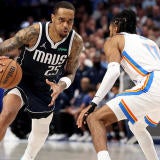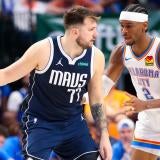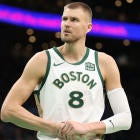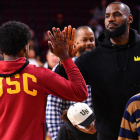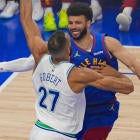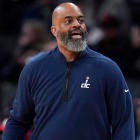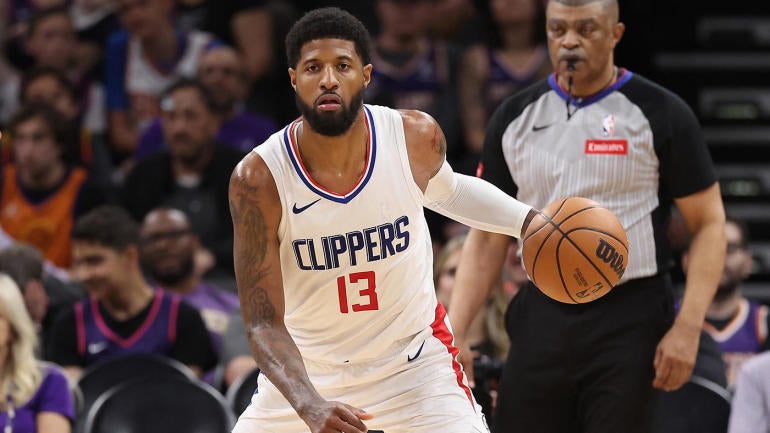
The Los Angeles Clippers have been one of the NBA's most eager spenders under Steve Ballmer. Spotrac estimates that the Clippers have paid $365,826,673 in luxury taxes over the past three seasons, a number that would only continue to rise if they decide to run it back next offseason. The Athletic's Sam Amick and Law Murray report that is indeed the hope... but with a caveat.
Earlier this season, the Clippers signed Kawhi Leonard to a three-year extension worth roughly $152.4 million. That deal came in just shy of his max, saving the Clippers an estimated $9.9 million over the life of the contract. Those savings are significant in this new world the NBA is about to enter. The harshest restrictions from the second luxury tax apron are going to kick in this offseason, and teams above that estimated $189.6 million figure will face a litany of obstacles in making any significant additions. Among other things, those restrictions include:
- An inability to sign free agents for the taxpayer mid-level exception, restricting teams to minimum contracts.
- An inability to aggregate salaries for trade purposes. This means, essentially, that the team cannot trade two $10 million players for a $20 million player.
- An inability to bring more money in on a trade than is sent out. Most NBA trades include a salary window where, so long as the incoming and outgoing amount is within a certain range, both teams can legally make the trade even if they are above the cap. Second-apron teams have to send out as much money or more than they take in.
For a Clippers team that probably needs to improve in order to meaningfully compete next season, those restrictions are potentially lethal. They are reportedly trying to avoid them, which is going to create issues as they attempt to re-sign their other star wing, Paul George.
The Clippers have reportedly been discussing a possible extension with George for months. No deal has materialized. George himself has said that he hopes to re-sign with the Clippers, but if they had offered him the max, well, we can assume he would have taken it by now. Sure enough, according to Amick and Murray, the Clippers are reportedly hoping George accepts a deal similar to the one Leonard took. Doing so would help the Clippers retain some measure of financial flexibility in upgrading this roster.
There is no telling how firmly the Clippers will hold that stance. If they refuse to move off of it, well, there's a good chance they're going to get outbid. Several teams with significant cap space, including the Philadelphia 76ers and Orlando Magic, are reportedly interested in signing George this summer. Philadelphia has so much potential cap space that it could conceivably sign George to his max while retaining the space to add more depth around him, Joel Embiid and Tyrese Maxey. Daryl Morey rarely quibbles over a few million dollars when it comes to bringing in outside stars. If George does indeed reach free agency, his track record suggests that he would indeed offer George the max.
We don't know what George will prioritize in free agency. He joined the Clippers in part to play in his home region of southern California. If he wants to stay there, the Clippers have an inherent advantage. But if money is the deciding factor? There's a real chance he's playing elsewhere. You could also argue, especially as the Clippers age, that Philadelphia and Orlando offer clearer paths to winning a championship, especially in the easier Eastern Conference.
Getting those savings on George's contract would be meaningful for the Clippers, but they're playing with fire by holding to them in negotiations (at least for now). Unless the Clippers want to let James Harden walk as well, they're not going to have cap space this offseason. They've traded most of their draft capital to put this team together. They just don't have a feasible way of replacing George's production, and without him, the Clippers should no longer be considered a championship contender.
In the end, if their choices are "pay George the max or let him walk," the former is ultimately the right call. They simply don't have an alternative for all of the short- and long-term risks such a contract would carry. This is their team. They don't have a backdoor path into rebuilding. They don't have an in-house replacement. They are stuck with this aging and expensive group, and no matter how much it costs, that group is only viable if George is part of it.







